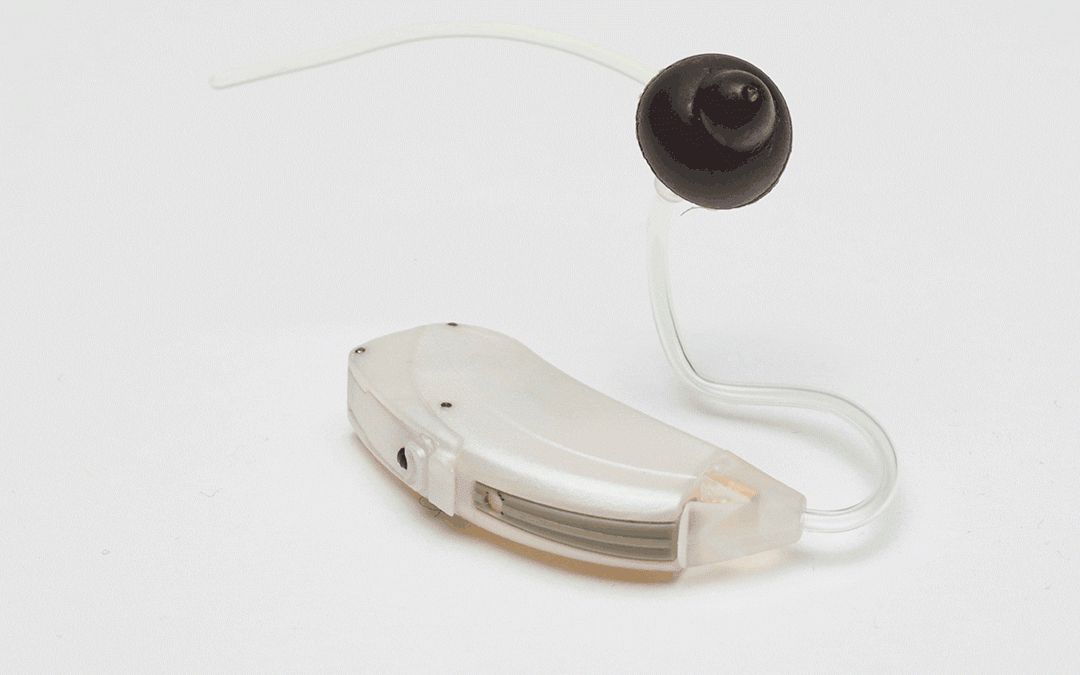Better Hearing Blog
Hearing Loss in Both Ears
In most cases, hearing loss occurs in both ears at roughly the same rate. This means that people who visit the hearing instrument specialist with the expectation that they will need only one instrument may need to adjust their thinking. Patients with “bilateral” (two ear) hearing loss who attempt to correct the problem with only one hearing instrument are usually in for a difficult experience. Wearing only one hearing instrument can change a symmetric hearing loss into an asymmetric one and make it difficult for the brain to process sound. This is particularly so in challenging situations, such as noise-filled environments. Wearing a hearing instrument in each ear makes it easier to locate sound and understand conversation.
Discovering and acknowledging there is a hearing problem is the first step toward correcting it. The next step is turning to a clinical audiologist for comprehensive examination, evaluation, and determination of the best approach to the impairment. Are you thinking there might be a problem with your hearing? Would you like to learn more about today’s advanced technology in hearing instruments? We can help you address these issues and others here at BETTER HEARING CENTER, New Hampshire’s premier hearing care provider.
P.S. Bilateral hearing loss can be either “symmetrical” (hearing loss is about the same in both ears) or “asymmetrical” (hearing in one ear is better than in the other ear).

Sharper Hearing, Sharper Mind
In an effort to examine the link between a form of age-related hearing loss (involving the inner ear and **hearing nerves) and the risk of developing mild cognitive impairment (MCI), researchers examined 1,604 people with an *average age of 75 years. (MCI is a type of cognitive decline that is noticeable, but not sufficiently significant to *interfere with daily activities.) The study’s participants underwent a series of hearing tests and had both their memory and reasoning tested. The researchers found that those with hearing loss were twice as likely to develop MCI *compared with people whose hearing was intact. While the study doesn’t prove that hearing loss leads to memory loss, it does demonstrate a link between the two.
Don’t let a hearing impairment keep you on the outside looking in. Help is available in many forms, but all begin with a comprehensive hearing evaluation by a clinical audiologist. We carry state-of-the-art testing equipment and a full range of today’s innovative hearing aids designed to bring back the sounds of life to the hearing impaired. And our staff is second to none when it comes to providing first-rate, compassionate, personalized services. Call us to **schedule a hearing test at BETTER HEARING CENTER, the only hearing center that has served the Concord, New Hampshire area for more than 55 years.
P.S. A third of seniors worldwide have a disabling form of hearing loss.

Hearing Loss’ Ripple Effect
Anyone who suffers from hearing loss should bear in mind that appropriate treatment with a hearing instrument not only benefits the person wearing it, but also those with whom he or she communicates on a regular basis. In fact, the spouse, siblings, friends, relatives, colleagues, and caregivers of those suffering from hearing impairment often report just as much miscommunication with hearing-impaired individuals as the people with the hearing loss. When researchers recently reviewed more than 70 previous studies that looked into the complaints made by people with hearing loss and those closest to them, they found that complaints related to effort in communication was the most-reported problem among those in the hearing-impaired person’s family, social, and work circles.
The first step toward better hearing is recognizing that a hearing problem exists. Having a hearing test is the second step. If the signs are there—frequently misunderstanding what is being said and asking people to repeat themselves—please call us at BETTER HEARING CENTER. We have the answers to many of the questions you’ll probably have regarding your hearing impairment. From sound, knowledgeable advice to custom fittings to follow-up care from an audiologist, you can rely on us. Call us to arrange a hearing test at New Hampshire’s premier hearing care provider.
P.S. Many hearing-impaired older adults might be more amenable to wearing hearing instruments if they know how much NOT wearing one was annoying those in their communication circles.

Open to Change
Over the past fifteen years, “thin tube” and “receiver-in-the-ear” (RITE) hearing instruments have come to dominate the “behind-the-ear” (BTE) market. These smaller, stylish designs have a more appealing look, are more comfortable to wear, and are easier to adjust than older BTE models. Because they deliver sound to the wearer’s ear via a thin tube or a “receiver-in-the-ear” (RITE) design that does not entirely block the ear, these hearing instruments are valued for their ability to circumvent the “occlusion effect” that makes the wearer’s voice seem hollow or “boomy.” These “open-fit” instruments are generally recommended for mild to moderate high-frequency losses. If necessary, more occlusive “ear tips” are available to accommodate a greater degree of hearing loss.
Technology is constantly on the move toward innovative ideas and products to bring back the sounds of life to the hearing impaired. If you think your hearing is not what it should be and could stand a boost, we invite you to BETTER HEARING CENTER to see the many marvels that exist today in the hearing industry, all designed to enhance the hearing you have. Have a hearing test soon—call us to schedule an appointment at New Hampshire’s premier hearing care provider. Most insurances accepted for hearing evaluations. We are the only hearing center that has served the Concord, New Hampshire, area for more than 55 years.
P.S. While “receiver-in-the-ear” hearing devices look like open-fit instruments, their receivers are separated from the rest of the electronics (behind the ear) and are placed inside the ear canal.

Distracted Listening
Recent research indicates that listening to something while looking in a different direction slows reaction times, as the brain works to overcome distractions. Whether we are driving or conversing, this finding reinforces the idea that, by casting our gaze in a direction that is different from what we are listening to, we compromise our ability to hear. Researchers found that simply shifting the direction of gaze a few degrees away from a sound source has a significant impact on brain activity. Our brains are wired to expect visual gaze direction to be in alignment with auditory attention. Thus, the whole notion of the validity of multi-tasking must be called into further question.
If you are concerned about your hearing, focus on one task at a time…helping yourself toward maximum hearing capability. It may be one of the most important undertakings of your life. At BETTER HEARING CENTER, we will stake our reputation on your complete satisfaction with our approach to addressing your hearing difficulties. Our state-of-the-art hearing tests are conducted and the results evaluated by an audiologist with advanced training in the art of helping the hearing impaired. If this sounds like it might be a solution for you, why not give New Hampshire’s premier hearing care provider a call?
P.S. The directional microphones available on hearing instruments help wearers align the source of the sound they are hearing with their sight of that source.

Prepare for Landing
Jet travelers often encounter the potentially painful problem (medically known as “barotrauma”) of having their ears blocked and in need of “popping.” Most people respond to this annoying sensation by yawning, which helps to open the Eustachian tubes and regulate pressure in the middle ear. It may also help to sip water and swallow to activate the muscles that open the Eustachian tube. If these methods don’t work, the “Valsava maneuver” may be tried, which involves taking a deep breath and pinch the nose shut. Then, keeping the mouth closed, the individuals tries to gently blow air through his or her nose. Another tactic, the Toynbee maneuver, involves pinching the nose closed and closing the mouth, then trying to swallow.
If you’ve tried just about every tactic you can think of to deal with your diminished hearing—shouting, turning up the volume, avoiding conversation, and withdrawing from social situations—now try an audiologist. At BETTER HEARING CENTER, we have extensive training and skills that enable us to understand and diagnose your loss, state-of-the-art testing facilities, and the very latest in hearing instruments to correct your impairment. Take the first painless step toward better hearing. Call us to schedule a hearing test at New Hampshire’s premier hearing care provider.
P.S. One tactic for popping the ears, called the Frenzel maneuver, involves pinching the nose closed and using the tongue to make a clicking, or “K,” sound.

